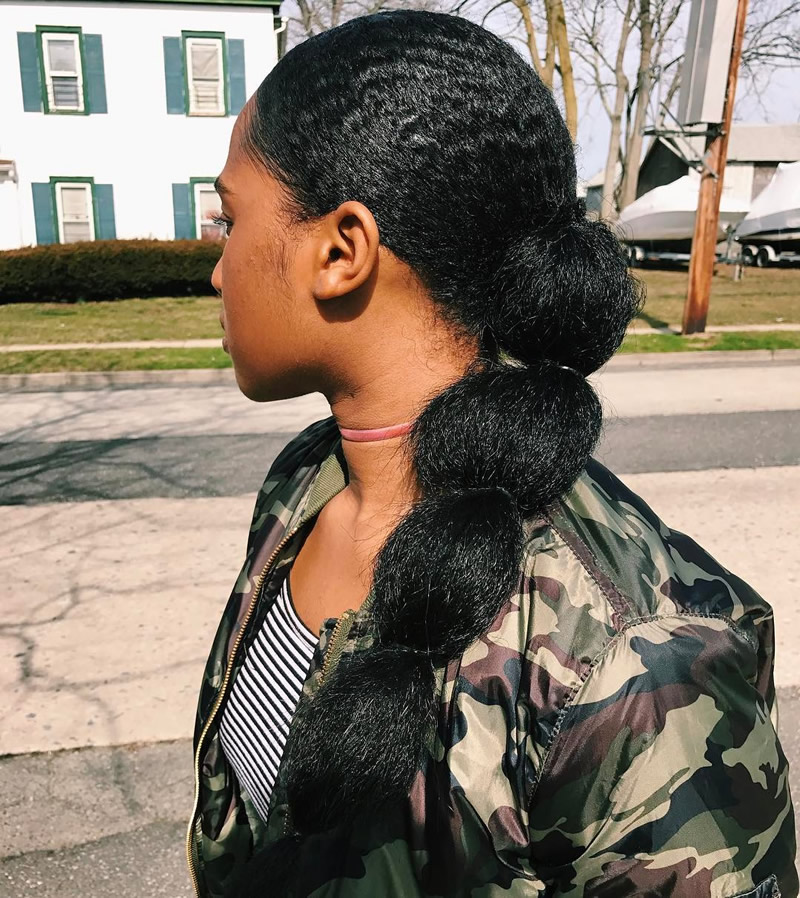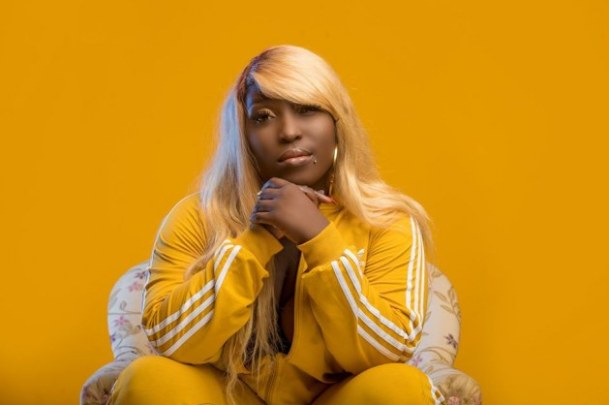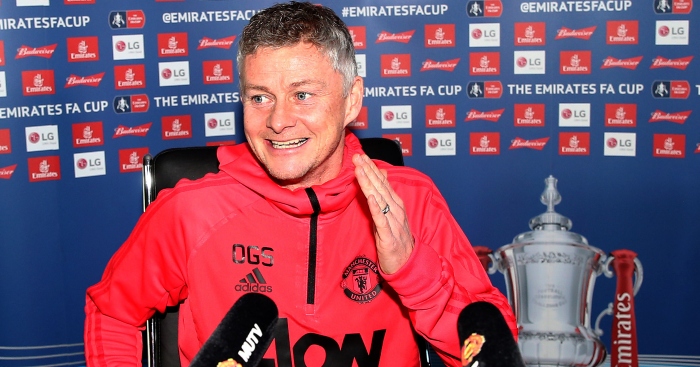Why Your Ponytail Gives You A Headache
- Home
- Why Your Ponytail Gives You A Headache

Why Your Ponytail Gives You A Headache
 The ponytail has long been a stylish and convenient hairdo. But it can also be a real pain.
The ponytail has long been a stylish and convenient hairdo. But it can also be a real pain.
Studies have suggested that repeated ponytail wear can cause alopecia, and the style has been at the center of a few viral hair controversies (and humorous gaffes). In 2018, singer Ariana Grande confessed that her iconic high ponytail leaves her in “constant pain.”
Grande’s complaint, in particular, is not uncommon, which raises an obvious question: Why do ponytails cause headaches? HuffPost spoke to a few neurologists to find out.
‘Ponytail headache’ is a thing
Scientists actually use the term “ponytail headache” as a nickname for the more formal “external-traction headache,” said Wade Cooper, an associate professor and director of the University of Michigan Headache and Neuropathic Pain Clinic.
Both terms are listed in the International Headache Society’s diagnostic guide.
“The mechanism behind it is there are pain-sensitive nerves in our scalp,” Cooper explained. “When there’s traction on those, like a pulling sensation, it may not hurt initially, but as that duration builds up, those nerves get more and more sensitive. Eventually, it sends that pain signal into the brain itself.”
A similar process makes your hair “hurt” when you have it pulled back. Hair follicles can get sore over time due to pressure on the nerve endings.
Ponytail headaches are also an example of a phenomenon called allodynia, according to Kiran Rajneesh, an assistant professor of neurology and director of the neurological pain division at The Ohio State University Wexner Medical Center.
“Allodynia is a fancy medical term for describing when touch sensation is perceived as pain by the brain,” he explained in an email. “With ponytail headaches, traction of hair is perceived as pain/headache by the brain.”
Other examples of allodynia may be pain from brushing your hair or shaving your face.
“Stimuli that shouldn’t be painful become painful,” said Deena Kuruvilla, an assistant professor of neurology at the Yale School of Medicine. “We wouldn’t expect the sensation of wearing a ponytail to be painful, but it can be. The superficial scalp nerves can be sensitive.”
The experience is pretty common
“Ponytail headache is very common,” Kuruvilla said, noting that it arises especially often with performers ― so Ariana Grande is not alone in her pain.
“We often see it in dancers, gymnasts, cheerleaders, ballerinas, because there’s that standard tight hairstyle that’s encouraged in those activities,” Kuruvilla noted. “We also tend to see it with swimmers because swim caps can be very irritating.”
Rajneesh listed additional head accessories that may lead to this sort of pain. “Headbands, hijab, ski mask, caps can also cause similar kinds of external headaches,” he said.
Cooper suggested that ponytail headaches may be more typical in cultures that promote tighter hairstyles. It’s not a modern concept either. “There are historical references to pain from hairstyles way back in the 1500s,” Cooper said.
Some feel it more than others
Of course, not every ponytail wearer experiences ponytail headaches.
“We think people who are prone to having migraines in the first place are more likely to get this kind of achy-ness from having their hair pulled tight than people who are not prone to it,” Cooper said, adding that people who experience regular migraines are often more sensitive to changes in temperature and other sources of discomfort.
Ponytail headache can also occur with other pain disorders like fibromyalgia, Kuruvilla said.
Beyond specific medical conditions, Cooper noted that different people simply process pain differently, which plays into why some people get ponytail headaches and others don’t.
There are ways to prevent or treat it
If you have a pain disorder and regularly suffer from ponytail or any other type of headache, seeking treatment for the underlying disorder may be the most important step.
There are also more common risk factors to consider. Some studies have linked that sensitive scalp sensation to sleep deprivation, the menstrual cycle and other hormonal changes.
“We can’t always control those things, but if you know you have this issue, it can be helpful to pre-treat with an anti-inflammatory like ibuprofen or naproxen,” Kuruvilla said.
Rajneesh, too, noted that over-the-counter meds like ibuprofen or acetaminophen can help. But his main suggestion was to rethink the traction of your ponytail and go for a looser style.
“Tight or pulled-down ponytails tend to give headaches more often,” he said. Greater hair weight or denseness and ornamental hairpins can be a factor as well.
“Usually repositioning the ponytail can relieve the headache ― also, taking the ponytail off for an hour or so can relieve the headache,” Rajneesh said. “Other lifestyle measures can include changing how you braid your hair, changing the hairline or how you crop your hair. Sometimes changing how you part your hair can help.”
And even if you need to have your hair uptight for an event, you can alleviate the pain by taking your hair down as soon as possible afterward.
“After an event like a wedding or dance recital, people have a tendency to keep their hair up in that tight style all day or night because it’s already done and nice,” Cooper said. “But the sooner you release your hair, the less likely it is to ache.”
- Share
Classic Ghana
Classic Ghana is a vibrant news portal dedicated to bringing you the latest in arts, entertainment, fashion, beauty, photography, culture, and everything in between. Our mission is to publish high-quality articles and features that inform, inspire, and engage the general public. We also believe in the power of community and creativity. That’s why we welcome contributions from our readers! If you have a story, article, or idea you'd like to share, we invite you to submit it for publication. Send your stories to: info@classicghana.com







